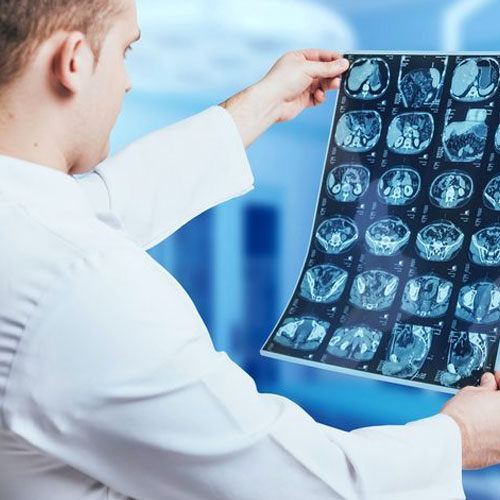

Radiology in Abu Dhabi
HMC combines High-quality diagnostic and therapeutic imaging with a team of experienced radiologists, each an expert in their particular anatomical field, who work in conjunction with our general internal physicians, cardiologists, surgeons, oncologists, neurologists and other specialists. Working in association with these specialists, our team of expert radiology technicians make sure patients are accompanied throughout their time in the department. Like the rest of the support team at HMC, they speak different languages, making sure that the patient is always comfortable.
FREQUENTLY ASKED QUESTIONS
What is radiology?
Radiology is a branch of medicine that uses imaging techniques to diagnose and treat diseases and injuries. It involves the use of various imaging technologies, such as X-rays, CT scans, MRI scans, and ultrasound.
What are the different types of radiology?
The different types of radiology include diagnostic radiology, interventional radiology, nuclear medicine, and radiation oncology. Diagnostic radiology is used to diagnose and monitor medical conditions, while interventional radiology involves minimally invasive procedures to treat or diagnose medical conditions. Nuclear medicine involves the use of radioactive materials to diagnose and treat medical conditions, while radiation oncology is used to treat cancer using high-energy radiation.
What are some common imaging techniques used in radiology?
Common imaging techniques used in radiology include X-rays, CT scans, MRI scans, ultrasound, and nuclear medicine imaging. Each imaging technique has its advantages and disadvantages, and the choice of imaging modality will depend on the specific medical condition being evaluated.
How is radiology used in medical diagnosis and treatment?
Radiology is used in medical diagnosis and treatment by providing detailed images of the inside of the body, which can help doctors identify and diagnose medical conditions. Imaging can also be used to guide minimally invasive procedures and monitor the effectiveness of treatments.
How do I prepare for a radiology exam?
To prepare for a radiology exam, you will need to follow specific instructions depending on the type of imaging exam. For example, you may be asked to fast before an exam, remove jewelry or clothing, or avoid certain medications. Your doctor or the radiology center will provide you with specific instructions.
How long does a radiology exam take?
The length of a radiology exam will depend on the type of imaging exam being performed. Some exams, such as X-rays, may take only a few minutes, while others, such as MRI scans, can take up to an hour or more.
Who interprets the results of a radiology exam?
The results of a radiology exam are typically interpreted by a radiologist, who is a physician specially trained in interpreting medical images. The radiologist will provide a report to your doctor, who will discuss the results with you.
How long does it take to get the results of a radiology exam?
The time it takes to get the results of a radiology exam will depend on the type of exam and the radiology center. In some cases, the results may be available immediately, while in other cases, you may need to wait a few days or more.
Can radiology detect all types of medical conditions?
Radiology can detect a wide range of medical conditions, but it may not be able to detect all types of conditions. Some medical conditions may not be visible on imaging, or may require other diagnostic tests for diagnosis.
Are there any limitations to radiology?
There are some limitations to radiology, such as exposure to ionizing radiation during some types of imaging exams, and the inability to detect some medical conditions. However, radiology remains an important tool in medical diagnosis and treatment.

